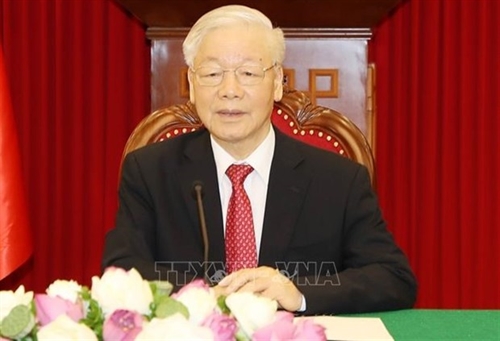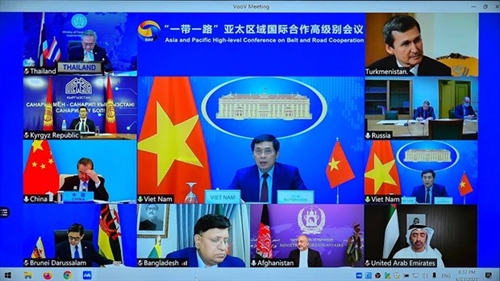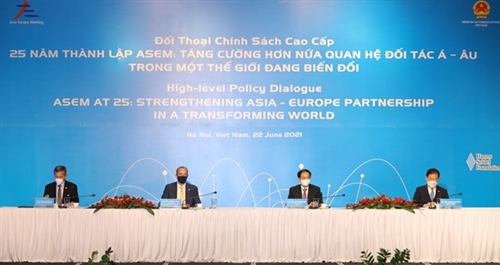From July 1, four laws come into force, including the Law Revising a Number of Articles of the Law on Disaster Prevention and Control and the Law on Dikes; the Law on Residence; the Law Revising a Number of Articles of the Law on Prevention and Control of Human Immunodeficiency Virus and Acquired Immunodeficiency Syndrome (HIV/AIDS); and the Law on International Agreements.
Law Revising a Number of Articles of the Law on Disaster Prevention and Control and the Law on Dikes
The Law creates a favorable legal corridor for promoting the role of the State in directing the disaster prevention and control work, and mobilizing resources for improving the resilience of the economy against disasters.
Compared to its predecessor, the Law adds two new articles concerning baseline surveys on disaster prevention and control, and sciences and technologies in disaster prevention and control.
As for amendments to the Law on Dikes, the Law requires the solicitation of opinions of the Ministry of Agriculture and Rural Development on the dredging of navigation channels within the dike protection scope to ensure safety for dikes of grade III to special grade.
Under the Law, it is no longer required to build viaducts running over river stretches for to-be-constructed bridges spanning diked rivers.
Law on Residence
The new Law contains several outstanding changes as compared to the 2006 version and its 2013 revisions.
The registration and management of residence status will be switched from manual method by household registration books and temporary residence books to information technology-based management via personal identification numbers.
The residence management software as part of the residence database software system designed by the Ministry of Public Security will be provided to state agencies for residence registration, and update, use and management of information in the residence database.
Under the Law, existing household registration books and temporary residence books remain valid for use as residence certification papers through December 31, 2022.
When citizens carry out procedures for residence registration, leading to changes in information in their household registration books or temporary residence books, residence registration offices will revoke such books and modify and update information to the residence database and may not grant new books or re-grant such books.
Law Revising a Number of Articles of the Law on Prevention and Control of Human Immunodeficiency Virus and Acquired Immunodeficiency Syndrome (HIV/AIDS)
The Law requests HIV-infected people to promptly notify their HIV positive test results to their spouses, fiancés or fiancées, or cohabitants.
Due to the increasing number of adolescences getting HIV infection, the Law allows people aged full 15 years or older (instead of 16 under the previous law) and having civil act capacity to request HIV testing on a voluntary basis.
It also broadens the participation of HIV-infected people and people with high-risk behaviors in HIV/AIDS prevention and control. For example, they may provide HIV screening testing services and supply biologicals to high-risk behavior people for HIV self-testing, provide counseling and support to high-risk behavior people to receive pre-exposure prophylaxis and post-exposure prophylaxis treatment, and give their opinions in the course of making policies and laws on HIV/AIDS prevention and control.
Law on International Agreements
The Law, which is designed to replace the 2007 Ordinance on Conclusion and Implementation of International Agreements, contains some new contents of significant importance.
Specifically, the Law clearly provides contents and nature of international agreements, distinguishing them from treaties as well as civil, economic, financial, and investment contracts and transactions.
It increases the number of subjects concluding international agreements which are not regulated in the 2007 Ordinance such as general departments and departments under ministries and ministerial-level agencies; specialized agencies of provincial-level People’s Committees, district-level People’s Committees; commune-level People’s Committees in border areas; and provincial-level bodies of socio-political organizations, socio-political-professional organizations, social organizations, and socio-professional organizations.
It also adds a new chapter on fast-track order and procedures, specifying criteria and conditions for application in urgent cases serving political or external requirements for the purpose of emergency relief or remediation of consequences of disasters, catastrophes and epidemics.- (VLLF)









